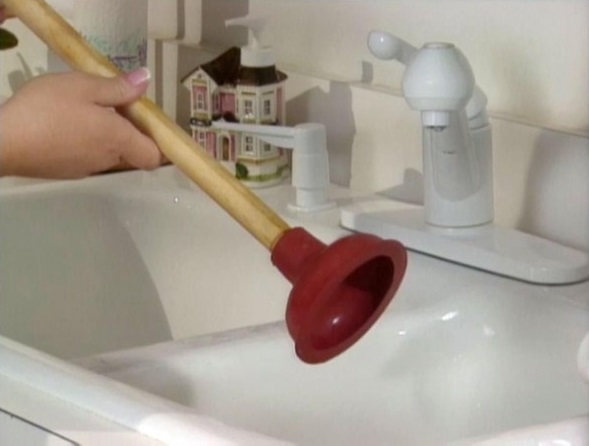The handy household plunger seems to fix every drain, including the toilet, bathtub and sink. However, this tool can’t fix all of the plumbing issues plaguing a home. Every home has a complex plumbing system, regardless of its size. Pipes supply every fixture with running water while a connected drainage system allows that moisture to move out of the structure without harming any interior materials. Consider some of the major plumbing issues that can negatively affect a home before automatically pulling out the plunger.
Inside Your Walls
Your plumbing pipes usually run through walls, especially for showers and laundry areas. If any leaks occur within the walls, they might go unnoticed until stains develop across drywall. Ideally, plumbing professionals should visit a home on a regular basis and verify that every pipe is clear and leak-free. Wall leaks are frustrating to deal with once they succumb to severe damage.
Main Lines Within the Yard
A plunger cannot fix a break in the main line. Each home has a main pipe that provides a pathway for all wastewater to enter a municipal treatment facility. If this main line cracks, the yard and home might have flooding issues from misdirected wastewater. In these cases, professionals must survey the damage and devise an applicable repair plan for the entire property.
Water Waste
A plunger cannot stop water waste from occurring right in your bedroom. Running toilets and leaking faucets may not appear to lose a lot of water, but you must calculate the gallons lost over the damaged time period. A toilet running for only a few hours can lose dozens of gallons of water. Homeowners end up paying for the repair and excessive water use when next month’s bill arrives.
Mineral Buildup
Most households have hard water which holds many minerals within it. Over time, these minerals stick to faucets and internal pipes. If professionals don’t survey and clean a plumbing system on a regular basis, these minerals will eventually block water lines. Professionals use chemicals to remove mineral buildup, making a plunger useless in these clog situations.
The Kitchen Drain
You could use the plunger on the kitchen drain, but this plumbing section often harbors tough blockages. As cooking fats move down the sink’s drain, they adhere to the pipe’s walls. Food particles, hair and other debris soon follow afterward. The debris attaches to the fats, and it eventually forms a clog that must be removed by professionals.
Got Hot Water?
If your hot water heater breaks down, it usually requires replacement. In these situations, you should contact professionals. These huge tanks are very heavy, so plumbers usually team up to replace them. They can also check the attached plumbing at the same time as the installation to further improve your pipes.
Freezing Temperature Issues
Plungers aren’t going to help pipes that are freezing and cracking during the winter. If you live in an area prone to freezing, plumbers should wrap any exposed pipes with insulation. Water can then flow freely through the system without clogging into ice and cracking the pipes themselves.
Water damage to any household area can be expensive to fix. If you notice any plumbing issues that are worsening within the home, contact trusted plumbers to fix the issue quickly. Ignoring plumbing problems only compounds the issue and creates excessive damage within the home.
Charlie Teschner started MESA Plumbing, Heating, and Cooling in 1982. Charlie has a journeyman and master plumber’s license. He was raised with a strong work ethic and he now applies those values to tasks such as Longmont, CO heating repair.

